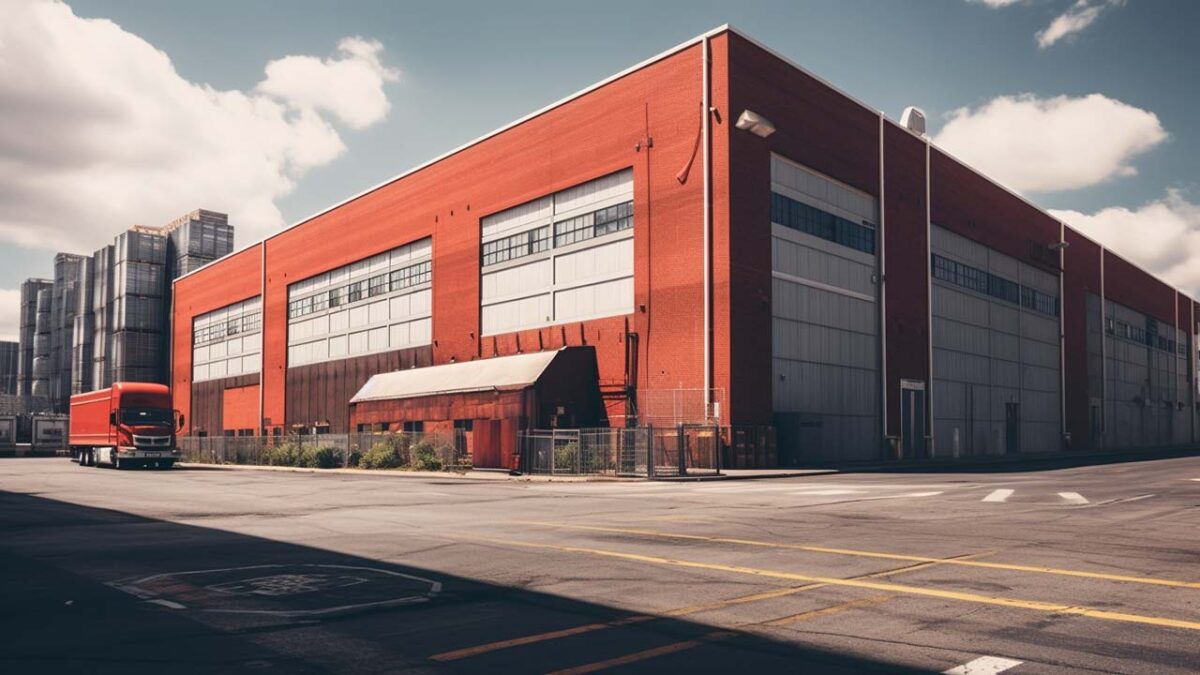Warehouse dynamics play a crucial role in the efficient functioning of modern logistics. As the demand for fast and reliable delivery services continues to grow, the location and operation of warehouses have become key factors in meeting customer expectations. In this article, we will explore the significance of city warehouses in modern logistics, the key functions they serve, and the advantages of locating warehouses in urban areas.
The Role of City Warehouses in Modern Logistics
City warehouses act as central hubs for the storage, distribution, and management of goods in urban areas. With the rise of e-commerce and the need for quick deliveries, city warehouses have become essential in meeting the demands of consumers who expect their packages to arrive promptly. These warehouses serve as strategic locations for storing inventory close to major consumer markets, allowing for faster order fulfilment and reduced transportation costs.
Key Functions of a City Warehouse
City warehouses perform a range of functions to ensure smooth logistics operations. Firstly, they serve as storage facilities, providing secure spaces for goods to be stored before onward distribution. These warehouses are equipped with advanced inventory management systems that enable efficient tracking and retrieval of products. Additionally, city warehouses often offer value-added services such as packaging, labelling, and quality control to streamline the supply chain process.
Advantages of Locating Warehouses in Cities
Locating warehouses in cities offers several advantages for modern logistics operations. Firstly, being situated in urban areas allows for easier access to transportation networks, including highways, railways, and ports. This strategic positioning reduces transit times and transportation costs, resulting in improved delivery efficiency. Moreover, city warehouses are closer to densely populated consumer markets, enabling faster order fulfilment and customer satisfaction.
Another advantage of city warehouses is their proximity to a skilled workforce. Urban areas often attract a diverse pool of talent, including logistics professionals, technicians, and warehouse operators. This availability of skilled labour ensures smooth warehouse operations and facilitates the implementation of innovative technologies such as warehouse automation.
Warehouse Location Factors to Consider
When selecting a location for a warehouse, several factors need to be taken into account. Firstly, the proximity to major transportation routes is crucial to ensure efficient inbound and outbound logistics. A well-connected warehouse location helps reduce transportation costs and enables faster delivery times. Secondly, the availability of suitable infrastructure, such as warehouses with adequate storage capacity and loading docks, is essential for smooth operations. Additionally, considering the cost of land and labour, along with local regulations and taxes, is crucial to make informed decisions when choosing a warehouse location.
The Rise of Warehouse Automation in Modern Logistics
The advent of technology has revolutionised warehouse operations, leading to the rise of warehouse automation. Automation systems, such as robotics, automated conveyor systems, and autonomous guided vehicles (AGVs), have significantly improved productivity and efficiency in city warehouses. These technologies streamline order picking, inventory management, and goods movement, resulting in faster turnaround times and reduced human errors.
Case Studies: Successful City Warehouse Operations in Leicester and Nottingham
The city of Leicester is home to several successful warehouse operations that have embraced modern logistics practices. For example is Premier Logistics, a leading logistics company specialising in warehouse management and distribution services. With their strategically located warehouse in Leicester, they have been able to cater to the growing demands of e-commerce businesses with efficient inventory management and prompt order fulfilment.
They have also emerged as one of the prominent logistics companies in Nottingham. Their state-of-the-art warehouse facilities, combined with advanced automation technologies, have enabled them to provide seamless logistics solutions to businesses across various sectors.
Choosing the Right Logistics Company for Your Warehouse Needs
When it comes to selecting a logistics company for your warehouse needs, several factors should be considered. Firstly, evaluate the company’s expertise in warehouse management and their track record in delivering efficient logistics solutions. It is crucial to choose a company that understands your specific requirements and has experience in your industry.
Secondly, consider the company’s technological capabilities. Look for logistics companies that have invested in advanced automation systems and digital platforms for real-time tracking and reporting. These technologies enhance transparency and visibility throughout the supply chain, enabling better inventory management and customer service.
How to Optimise Warehouse Operations for Efficiency
To optimise warehouse operations for efficiency, several strategies can be implemented. Firstly, adopting warehouse management systems (WMS) can streamline inventory tracking, order processing, and picking operations. These systems provide real-time insights into stock levels, order status, and performance metrics, enabling proactive decision-making.
Secondly, implementing lean principles, such as 5S methodology and continuous improvement, can eliminate waste and improve overall efficiency. By organising the warehouse layout, standardising processes, and continuously seeking ways to enhance productivity, businesses can achieve significant cost savings and faster order fulfilment.
Future Trends in Warehouse Dynamics and Modern Logistics
The future of warehouse dynamics and modern logistics is poised for further advancements. Emerging technologies, such as the Internet of Things (IoT), artificial intelligence (AI), and blockchain, are expected to revolutionise warehouse operations. IoT-enabled sensors will provide real-time insights into inventory levels, temperature control, and product conditions. AI-powered algorithms will optimise warehouse layout and inventory placement, while blockchain technology will enhance transparency and security in supply chain transactions.
Choosing The Right Logistics Company
In conclusion, city warehouses play a vital role in modern logistics by serving as central hubs for storage, distribution, and management of goods. Their strategic locations in urban areas offer advantages such as proximity to transportation networks, skilled labour availability, and faster order fulfilment. Warehouse automation and advanced technologies further enhance efficiency and productivity in warehouse operations. By choosing the right logistics company and implementing optimization strategies, businesses can harness the full potential of warehouse dynamics to meet ever-growing customer expectations. As the logistics industry continues to evolve, embracing future trends will be crucial for staying ahead in the competitive market.


